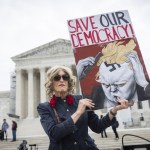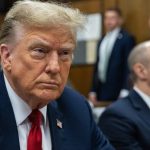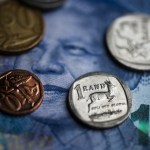“We need to see where we are and see if there remain opportunities to pursue the diplomacy and pursue the dialog,” Blinken said Wednesday at a news conference in Kyiv alongside Ukrainian Foreign Minister Dmytro Kuleba.
Blinken, on a three-day tour of Europe, reiterated American solidarity with Ukraine after a day of meetings, including with President Volodymyr Zelenskiy. But he didn’t announce new military support beyond confirming the approval of $200 million in additional defensive security assistance last month.
With an estimated 100,000 Russian troops on Ukraine’s border, Blinken said it still isn’t clear what President Vladimir Putin’s “central demand” to resolving the crisis is. He reiterated the Western view that some of Moscow’s demands — such as permanently rejecting potential Ukrainian membership in the NATO alliance — are non-starters and said diplomacy is the preferred path out of the crisis.
Read more: Europe Fears ‘New Normal’ of Nonstop Russia Tensions on Doorstep
“We have made a clear, clear preference for finding a diplomatic resolution to the conflict and to de-escalate the situation,” Blinken told reporters earlier alongside Zelenskiy.
Both Blinken and Kuleba urged Ukrainians to remain united under the threat from Russia, which annexed Crimea in 2014 and has fueled a proxy conflict in the eastern Donbas region ever since.
“Russia’s biggest achievement would be to sow panic and distrust in Ukrainian society and destabilize Ukraine from within, first with the economy and finances,” Kuleba said. “We won’t spare any effort in not allowing Russia to achieve these goals literally before any weapons are drawn.”
At the event with Kuleba, Blinken declined to respond to a question about whether the U.S. would ban Russia from the Swift financial transaction system if it invades Ukraine. Instead, the top U.S. diplomat repeated past statements that any sanctions imposed over an attack would be “massive” and have a financial component.
U.S. officials have previously said privately that kicking Russia out of Swift isn’t likely to be on the table because of the pain it would cause ordinary Russians.
But the discussion over Swift is emblematic of the broader lack of consensus between the U.S. and Europe over specifically which penalties to place on Moscow if Putin attacks. Some European nations have expressed anxiety that hitting Russia hard could damage their own economies, or perhaps spur Putin to cut off essential gas supplies to them.
As a result, a draft of a joint statement that EU foreign ministers will be asked to adopt on Monday is mostly limited to echoing what the bloc’s leaders agreed last month, despite U.S. prodding to come to an agreement now. But since the bulk of any EU-wide response would have to be agreed by all 27 member states, several governments are keen to avoid a group-wide debate for now, fearing it would advertise potential differences.
Europe Skirts Detailed Russia Sanctions Debate Despite War Fears
At the White House, President Joe Biden spoke with a bipartisan group of senators who just returned from Kyiv. The senators on the conference call have been clashing over whether to impose immediate sanctions on the Nord Stream 2 gas pipeline from Russia to Germany. But they sought to project an image of unity given their shared support for Ukraine.
Senator Jim Risch, the top Republican on the Foreign Relations Committee, said he was in discussions with the Democratic Chairman Bob Menendez on a package of tough sanctions that could get bipartisan support. “I’m neither optimistic nor pessimistic,” Risch said after a press conference with other Republicans. “It’s a work in progress.”
Russian Deputy Foreign Minister Sergei Ryabkov dismissed fears that Russia will invade, saying he sees “no risk of a large-scale war,” in remarks at a roundtable hosted by the Valdai discussion club in Moscow.
‘Wait Endlessly’
While the rounds of talks with the U.S. and its allies last week resulted in “in-depth and fairly productive” discussions, Russia will settle for no less than “iron-clad and legally binding” guarantees in writing, the senior Russian diplomat said.
“We’re not ready to wait endlessly” for an outcome to these diplomatic efforts, he said.
Blinken said he won’t present a written U.S. response to Russia at the meeting with Foreign Minister Sergei Lavrov in Geneva on Friday. Blinken heads next to Berlin to meet with officials from the new government of Chancellor Olaf Scholz.
French President Emmanuel Macron also issued a pledge for European unity in tensions with the Kremlin, saying it will push forward a four-way diplomatic project with Germany to scale back violence in the Donbas region with Russian-backed separatists — known as the “Normandy format.”
“We’ll continue with Germany in the Normandy format to look for a solution to the conflict in Ukraine,” Macron told European lawmakers in Strasbourg as France begins its six-month rotating presidency of the European Council. “We will make sure that Europe makes its single voice heard.”
But officials continued to warn of a military conflict with Russia in some form. Martin Herem, Estonia’s top military commander, said the Kremlin’s aim was to break western unity and project military strength — and he anticipated violence.
“Everything is now moving in that direction, that this will turn into an armed conflict,” Herem said in an interview on public broadcaster Radio 2 on Wednesday.
James Heappey, a junior U.K. defense minister, echoed that prediction, and went further. The west is “weeks, perhaps even days away” from a military conflict, in which “tens of thousands of people are going to die,” he told BBC television.
“All of us in the West need to be very clear that the route out of this is through diplomacy, caution and cool heads — not the absolute horror that could be just days or weeks away,” Heappey said.
–With assistance from Henry Meyer, Andrey Biryukov, Aaron Eglitis, John Follain, Kitty Donaldson, Nick Wadhams, Alberto Nardelli and Daniel Flatley.






















 Become an Insider
Become an Insider
Comments - Please login in order to comment.